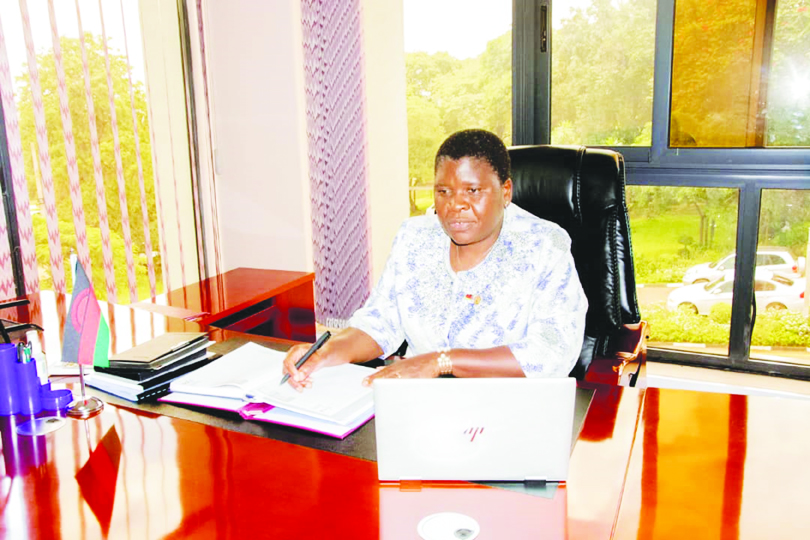
By Wahard Betha
The Ministry of Mining says the newly launched National Petroleum (Exploration and Production) Policy (NPEPP) will assist the Ministry to achieve its aspirations in the upstream petroleum subsector.
Minister responsible, Monica Chang’anamuno made the remarks during the joint launch of a five-year Strategic Plan for the Ministry and NPEPP in Lilongwe.
Chang’anamuno said her Ministry has full confidence that the policy will improve governance framework for the upstream petroleum subsector, enforce international cooperation, protect the environment and maximize the benefits that will accrue for Malawi.
She said: “The Government of Malawi, through my Ministry, has developed this National Petroleum (Exploration and Production) Policy to provide policy direction and guidance in the implementation of the interventions in the upstream petroleum subsector.
“The results from studies done by two international universities on petroleum and gas way back increased the knowledge of the geology and hydrocarbons potential of the lakebed as it was confirmed that there exist large structural features which are capable of trapping migrating petroleum.”
“In addition, the results also established that potential reservoir rocks have been deposited locally along the lake margins, and there is a possibility of such deposits extending into the lake.”
“The discoveries of petroleum in other areas along the East African Rift Valley have further increased interest for exploration of petroleum in Malawi.”
Chang’anamuno explained that in order for the Ministry to achieve intended goals, the Policy has prioritized implementation of measures including: Governance; Fiscal Regime; Revenue Management; Environmental Management; Corporate Social Responsibility and Community Development Agreements; Local Content; Resource Ownership; Data Management; License and Contract Management; Regional and International Cooperation; and Cross Cutting Issues.
The exploration of petroleum in Malawi was unveiled in the 1980s by the Duke University which conducted a ship-borne seismic survey over Lake Malawi which resulted in the establishment of the presence of thick sedimentary rocks in some parts of the lakebed with potential for hydrocarbons accumulation.
This was followed by shallow scientific drilling on the lakebed by the Syracuse University in 2004 in order to collect drill core samples for research purposes.
Petroleum exploration and production in the country is regulated by the Petroleum (Exploration and Production) Act of 1983, Exploration and Production Regulations of 2009, and other legal, regulatory and policy frameworks.
On the Strategic plan, Chang’anamuno said the development of the plan follows Government’s interest for the mining sector to contribute to the sustainable socio-economic growth and development of the country.
She said the strategic plan is aimed at promoting growth and sustainable development of the mineral sector with a view to stimulating exports and contributing to import substitution.
Chang’anamuno said: “The Plan provides a new operational framework with a clear mission, vision and strategic objectives along with clear performance indicators.”
“Furthermore, the Plan has taken into account economic challenges Malawi is facing both at micro and macro levels.”
“The Plan is, therefore, crafted in such a way that it should respond to these challenges for a better Malawi.”
Commenting on the two documents, Chairman for Globe Metals and Mining Africa, Neville Huxham urged the Ministry and other partners to consider taking action in order for the strategic plan and the policy to benefit Malawians.
The implementation of the plan is expected to take place within a period of five years, from 2022 to 2027.

hiphop
relax everyday